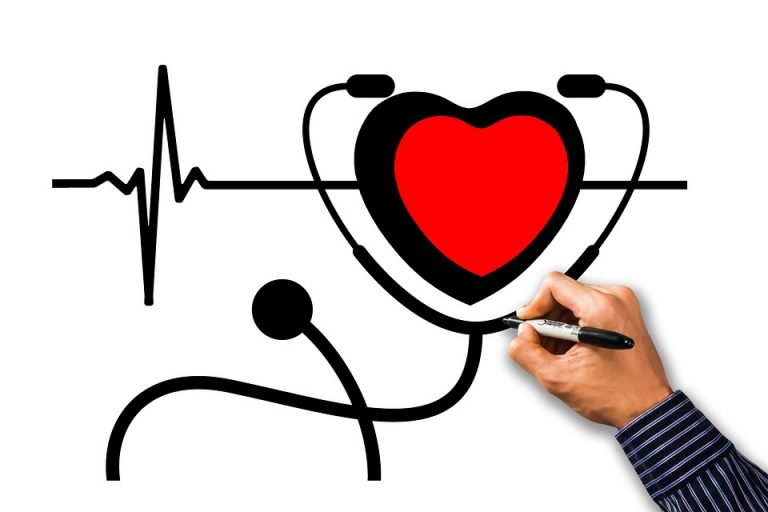High cholesterol can feel like that uninvited guest who overstays their welcome. It creeps in silently but can lead to some serious health risks if not addressed. Luckily, there are 10 simple hacks to lower your cholesterol naturally that can help you reclaim your health and vitality. Let’s dive into these practical, everyday strategies you can adopt to support your heart and enhance your overall well-being.
Understanding Cholesterol
Cholesterol is a waxy substance your body needs to build cells and produce hormones. But not all cholesterol is created equal. You have two main types: low-density lipoprotein (LDL), often dubbed “bad” cholesterol, and high-density lipoprotein (HDL), known as “good” cholesterol. High levels of LDL can lead to plaque buildup in your arteries, increasing the risk of heart disease and stroke.
This is why knowing how to manage your cholesterol levels is crucial. You want to keep your LDL in check while boosting your HDL. So, let’s explore how you can do just that!
1. Embrace the Power of Plant-Based Foods
Incorporating more fruits, vegetables, whole grains, and legumes into your meals can work wonders for your cholesterol levels. These foods are rich in fiber, which helps lower LDL cholesterol.
- Oats: Start your day with a hearty bowl of oatmeal.
- Beans: Add black beans or lentils to your salads and soups.
- Fruits: Apples, grapes, and citrus fruits are fantastic options.
Making these foods the star of your plate means you’re nourishing your body while keeping cholesterol in check.
2. Swap Out Saturated Fats
Saturated fats can raise your LDL cholesterol. You’ll find them in fatty cuts of meat, full-fat dairy products, and some oils.
Instead, opt for healthier fats:
- Olive oil: Use it for cooking or as a salad dressing.
- Avocados: These creamy wonders are not only delicious but also heart-healthy.
- Nuts: A handful of almonds or walnuts can make a great snack.
These swaps not only help your heart but also keep your meals exciting and flavorful.
3. Get Moving
Regular physical activity is a game changer. It helps raise your HDL cholesterol while lowering LDL levels. You don’t need to run marathons; even moderate exercise can make a difference.
- Walking: Aim for 30 minutes a day.
- Dancing: Who says exercise has to be boring?
- Cycling: Enjoy the fresh air while you pedal your way to better health.
Find something you love, and make it a part of your daily routine. Your body will thank you.
4. Lose Weight
If you’re carrying extra pounds, shedding even a small amount can help lower your cholesterol levels. When you lose weight, you also reduce the amount of LDL in your bloodstream.
- Set realistic goals: Aim for losing 1-2 pounds a week.
- Portion control: Be mindful of how much you’re eating.
- Stay hydrated: Sometimes our bodies confuse thirst for hunger.
Remember, every little bit counts. Celebrate your progress, no matter how small.
5. Quit Smoking
If you’re a smoker, kicking the habit can improve your HDL cholesterol. Not to mention, it reduces your risk of heart disease and improves your overall health.
- Seek support: Join a support group or talk to your doctor.
- Find alternatives: Chewing gum or engaging in a hobby can help distract you from cravings.
Your heart will thank you for making this brave choice.
6. Limit Alcohol Intake
Moderate alcohol consumption can have positive effects on HDL cholesterol, but too much can lead to serious health issues. It’s all about balance.
- Stick to guidelines: Women should limit to one drink per day, while men should aim for two.
- Choose wisely: Red wine, in moderation, is often touted for its heart-healthy benefits.
Always listen to your body and know your limits.
7. Increase Omega-3 Fatty Acids
These healthy fats can be found in fish like salmon, mackerel, and sardines. They help lower triglycerides and increase HDL cholesterol levels. If you’re not a fish lover, consider:
- Chia seeds: Add them to smoothies or oatmeal.
- Flaxseeds: Sprinkle them on salads or yogurt.
- Walnuts: A delicious snack that’s also beneficial.
Incorporating omega-3s into your diet is a tasty way to support your heart health.
8. Consider Supplements
Sometimes, diet alone isn’t enough. Supplements like psyllium husk and plant sterols can help lower cholesterol levels. Always consult your healthcare provider before starting any new supplement.
- Psyllium husk: A fiber supplement that can help reduce LDL.
- Fish oil: If you’re not getting enough omega-3s from your diet.
These can be effective tools in your cholesterol-lowering toolkit.
9. Manage Stress
Chronic stress can negatively impact your cholesterol levels. Finding ways to manage stress is essential for your heart health.
- Mindfulness: Practice meditation or deep-breathing exercises.
- Yoga: A fantastic way to relax and strengthen your body at the same time.
- Nature walks: Spend time outdoors to refresh your mind.
Find what works for you and make it a priority. Your heart deserves it.
10. Regular Health Check-ups
Regular check-ups with your healthcare provider are essential. Monitoring your cholesterol levels will help you stay on top of your health.
- Know your numbers: Understand what your cholesterol levels mean.
- Ask questions: Don’t hesitate to discuss concerns with your doctor.
- Create a plan: Work together to set achievable health goals.
Being proactive about your health is one of the best gifts you can give yourself.
Bottom Line
Lowering your cholesterol naturally doesn’t have to be overwhelming. With these 10 simple hacks to lower your cholesterol naturally, you can take charge of your health and feel your best. Start small, build healthy habits, and remember that every step counts.
Take action today! Choose one or two hacks to implement and watch as you start to feel the positive changes in your body and mind. Your heart will thank you for it.
FAQ
1. How quickly can I lower my cholesterol?
Results can vary, but many people see improvements within a few weeks of making dietary and lifestyle changes.
2. Are there foods I should avoid completely?
While moderation is key, limit saturated and trans fats found in processed foods and fatty meats.
3. Can stress alone raise cholesterol levels?
Yes, chronic stress can negatively impact cholesterol levels, so managing stress is crucial.
For more information on cholesterol and heart health, check out resources from the American Heart Association here and the National Heart, Lung, and Blood Institute here.
Get Your FREE Natural Health Guide!
Subscribe now and receive our exclusive ebook packed with natural health tips, practical wellness advice, and easy lifestyle changes, delivered straight to your inbox.




